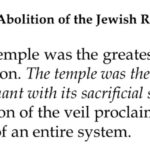
Matthew 18:21-35
One of the most vivid images in the whole New Testament is that of a man running.
Maybe this image doesn’t seem news-worthy to you. These days, all sorts of people run to keep fit. Not just athletes, but everyone from actresses to presidents have been known to don jogging suits. This would not have been the case, however, in 1st century Palestine. In Jesus’ world, the more senior you were in a community, the less likely you were to even walk fast. The idea was that the slower you moved, the more dignified you were.
So when Jesus told a story about a man running, this was designed to have the same effect on His audience as we would experience if Queen Elizabeth were to visit us wearing a sweatshirt and ripped jeans. It involves a total loss of dignity.
And when we discover why this man is running, the effect is even more shocking. This man is running to greet someone–someone who has brought disgrace on the whole family. We commonly call this story the “Parable of the Prodigal Son”(Lk.15:11-32), but it might be equally appropriate to call it the “Parable of the Running Father”.
And only when we understand WHY this man is running will we truly be able to understand what Jesus meant when He tells us to forgive our sinning brother “seventy times seven”(Mt.18:22).
We need shocking stories like the “Running Father” because our generation often trivializes forgiveness. Since we live in a generation that demands that our rights be respected , forgiveness is hard to come by when these rights are violated. It has degenerated to a point where lawsuits are now, quite often, seen as a virtuous action. Forgiveness gets regulated for only “small” sins–things like: being late for work, forgetting to return a borrowed item, or forgetting to ask permission for something.
Most of the time, what we settle for isn’t even forgiveness, but tolerance. But the father did not merely “tolerate” his prodigal son, he was on the look out for him(Lk.15:20). And when he saw his son, “still a long way off”(Lk.15:20), he ran to him , embraced him , and threw him a party . All of this, a token of the father’s forgiveness .
Forgiveness is easy to talk about, but I would contend that it is one of the more difficult tasks for a Christian to undertake. Elizabeth O’Connor once wrote, “Despite a hundred sermons on forgiveness, we do not forgive easily . . . Forgiveness, we discover, is always harder than sermons make it out to be”.
I wonder how Peter responded to Jesus’ teaching on forgiveness. We hear Peter’s question and Jesus’ response, but that is it. Peter asks, “Lord, how often shall my brother sin against me and I forgive him?”(v.21). Peter’s next statement makes you wonder if he really wanted an answer or if he was just trying to impress Jesus, since he asks “Up to seven times?”(v.21). Peter knew he was being generous. The religious leaders of the day were teaching that three times was enough to forgive someone and Peter more than doubled that.
Jesus’ response must have been shocking to Peter. “I do not say to you, up to seven times, but up to seventy times seven”(v.22).
That’s 490 times!!! What is even more striking is that the 490 is not even meant to be literal–the idea is that the number of times we are to forgive our sinning brother or sister is unlimited!
How can this be? Unlimited forgiveness? Surely there must be an exception? Jesus, however, provides no exception . Instead, He provides us with a parable that relates “the kingdom of heaven” to forgiveness(v.23).
The parable begins with a king coming to settle an account with a servant who owed him “ten thousand talents”(v.24). How much is “ten thousand talents”? Try approximately 10 million dollars!
Obviously this was no ordinary servant! This would likely have been a government official who collected money on behalf of the king. But the servant did not have the means to repay the king(v.25). Realizing the severity of the debt, the servant fell “prostrate” begging the king, “Have patience with me, and I will repay you everything”(v.26).
The servant simply wanted some more time, some “patience”, a temporary tolerance while he gathered the funds. What the servant got, however, was much more. The king “felt compassion and released him and forgave him the debt”(v.27).
10 million dollars–forgiven! I can’t even to begin to comprehend how the servant would have felt! We would be ecstatic with so much less than that! If the bank came knocking on my door to tell me they had forgiven me my student loan, I would surely throw a party! What would you do if the bank came knocking on your door to tear up your mortgage? “Have the house–for free”, they tell you.
This story, however, doesn’t finish nearly as well. Instead of rejoicing in the forgiveness of his debt, the servant finds a colleague who owes him about three months wages(v.28). He grabs this colleague and “chokes” him demanding repayment.
Notice the reply from the colleague, “Have patience with me and I will repay you”(v.29). This is the same reply the servant gave the king. Instead of forgiving the man though–instead of merely exercising the patience the colleague asks for, the servant has him thrown in jail(v.30).
It comes as no surprise to us then, that when the king hears of this, he scolds his servant, “Should you not also have had mercy on your fellow servant, even as I had mercy on you?”(v.33).
The king also turns him over to the “torturers” (v.34). Having researched this Greek word, I can tell you that “torturers” were more like a collection agency–not a friendly one, to be sure–but the type of collection agency that a modern day mafia might employ. At any rate, this servant who was hypocritical in response to money owed him, now had to pay back every cent(v.34).
“So shall My heavenly Father also do to you, if each of you does not forgive his brother from your heart”(v.35)
There is a lot of theology bound up in this parable–a lot is going on, to be sure–but there is really only ONE point we need to take from this parable. If you can only remember one thing from this sermon, remember this:
Since God has forgiven us of an infinite amount of sin, we MUST forgive others(repeat).
Who should we forgive? EVERYONE. How many times should we forgive? EVERY TIME they sin against us.
As C.S. Lewis put it, “To be a Christian means to forgive the inexcusable, because God has forgiven the inexcusable in you”. As N.T. Wright puts it, “failing to forgive one another isn’t a matter of failing to live up to a new bit of moral teaching”–to fail to forgive means to “cut off the branch we are sitting on”. It is to deny the very basis of our own salvation–forgiveness of sin.
Walter Wink tells the story of how a group of Polish Christians came to this very realization.
Two peacemakers went to visit a group of Polish Christians ten years after the end of World War II. “Would you be willing to meet with other Christians from West Germany?” the peacemakers asked. “They want to ask forgiveness for what Germany did to Poland during the war and to begin to build a new relationship”.
At first there was silence. Then one Pole spoke up. “What you are asking is impossible. Each stone of Warsaw is soaked in Polish blood! We cannot forgive!”.
Before the group parted, however, they said the Lord’s Prayer together. When they reached the words “forgive us our trespasses as we forgive . . . “, everyone stopped praying . Tension swelled in the room. The Pole who had spoken so vehemently said, “I must say yes to you. I could no more pray the Our Father, I could no longer call myself a Christian, if I refuse to forgive. Humanly speaking, I cannot do it, but God will give us strength!”.
Eighteen months later the Polish and West German Christians met together in Vienna, establishing friendships that continue to this day.
Part of our reluctance to forgive, I suspect, is due to this misunderstanding that the purpose of forgiveness is for the benefit of the one who has wronged us. We don’t want the person who hurt us to gain anything, so instead of forgiving them, we harbour bitterness. But as Lewis Smedes points out though, “the first and often onlyperson to be healed by forgiveness is the person who does the forgiveness”. The Christians in Poland found that out.
Forgiveness, like all of the other commands of Jesus, is not meant to burden us–it is meant to liberate us. Forgiving others is for our own good.
Forgiveness is also for the good of the church. There are a lot of hurting people in this community we live in. Are people staying away from church because they suspect we will make them feel worse? What would happen if we gained a reputation for being a loving and forgiving church? A church full of people addicted to forgiving one another?
Jesus reduced the mark of a Christian to this: “By this all men will know that you are my disciples, if you LOVE one another”(Jn.13:35). Look around the sanctuary. Do you LOVE everyone that is here? Maybe you don’t even know the name of everyone here! Maybe you know some people very well, but you still struggle to love them. Perhaps some of these people rub you the wrong way . . . perhaps you are insisting on harbouring bitterness toward them. Have you forgiven them? Or do you simply “tolerate” them?
If LOVE is the distinguishing mark of a Christian, how do we get there? Forgiveness . We learn how to LOVE by FORGIVING those who have wronged us.
Let us resolve today to be known as a forgiving and loving church. Where do we start? How about coffee hour. Be good to one another. Love one another. Forgive one another. And do it over and over and over again. Because the more you forgive, the more you will see the benefits of it–for yourself, and most importantly, for the Church of Jesus Christ. Amen.













